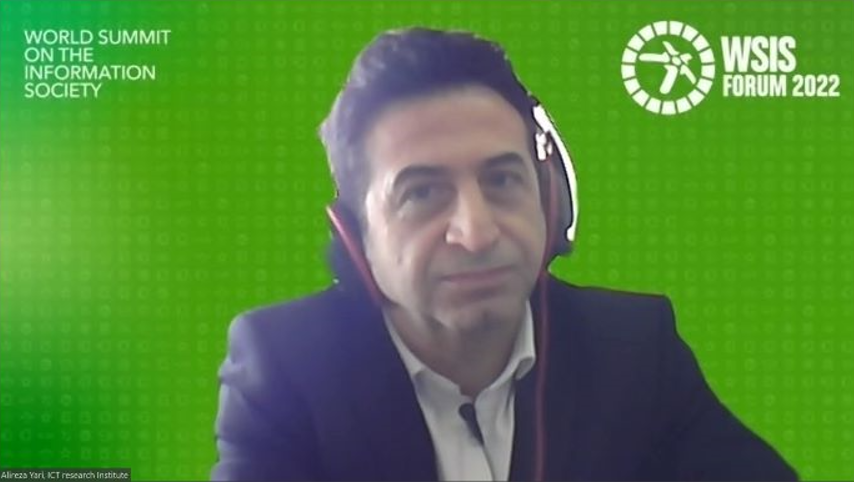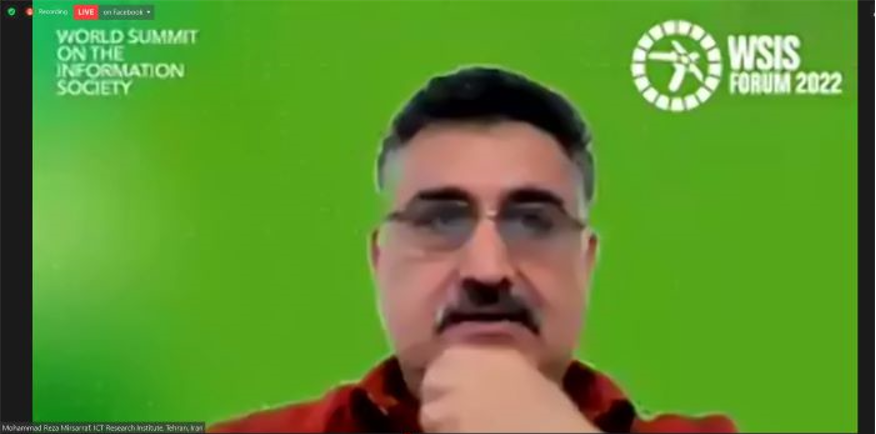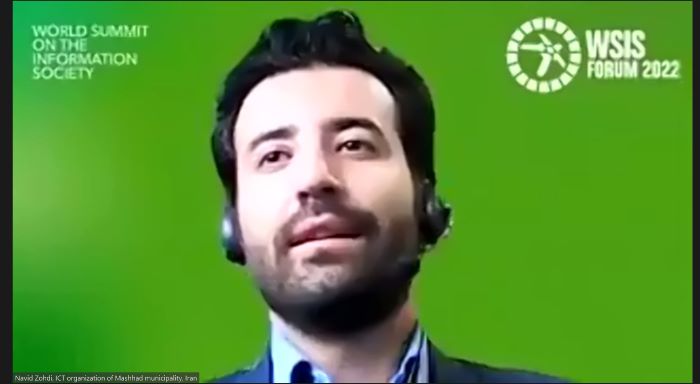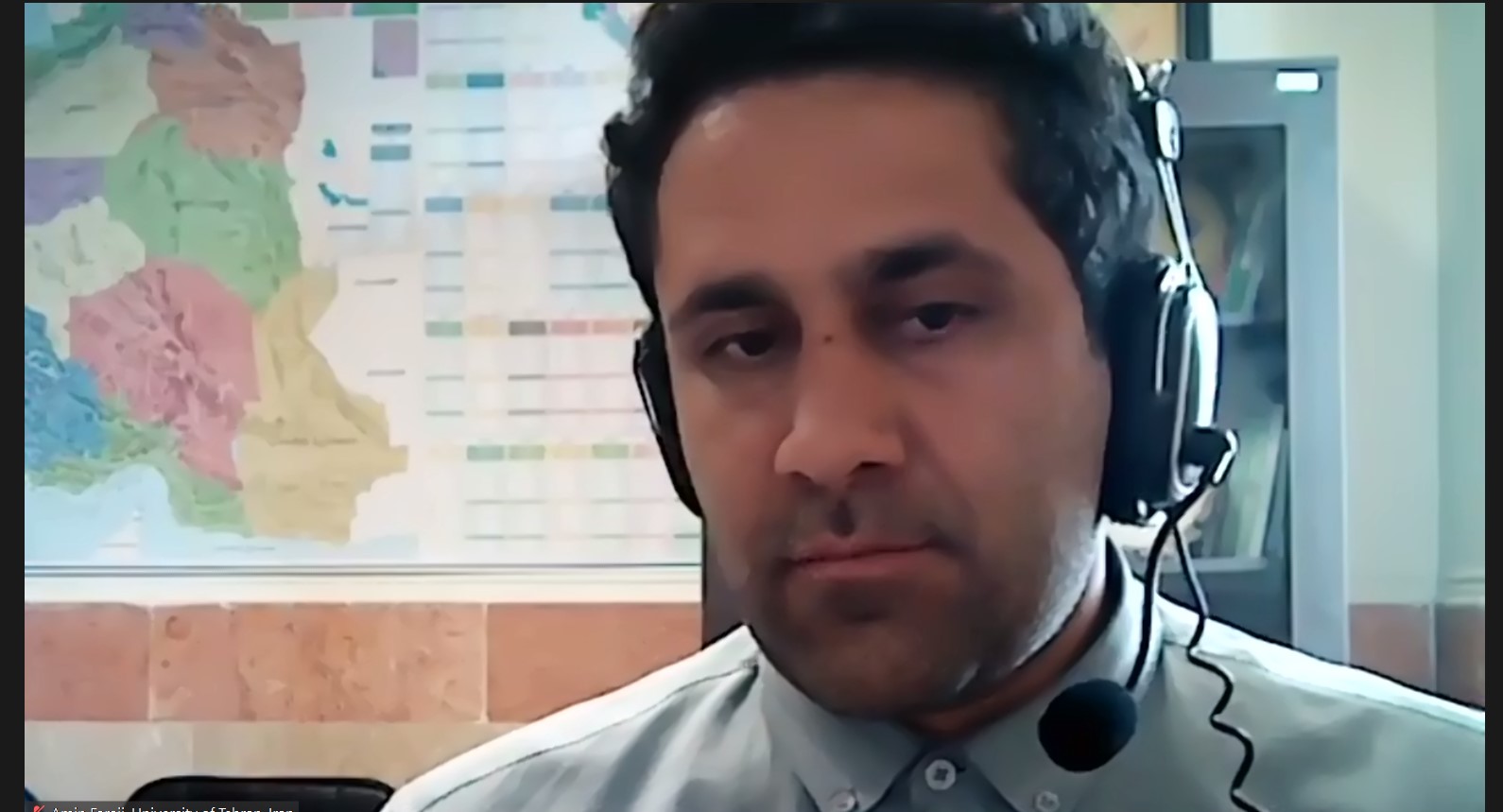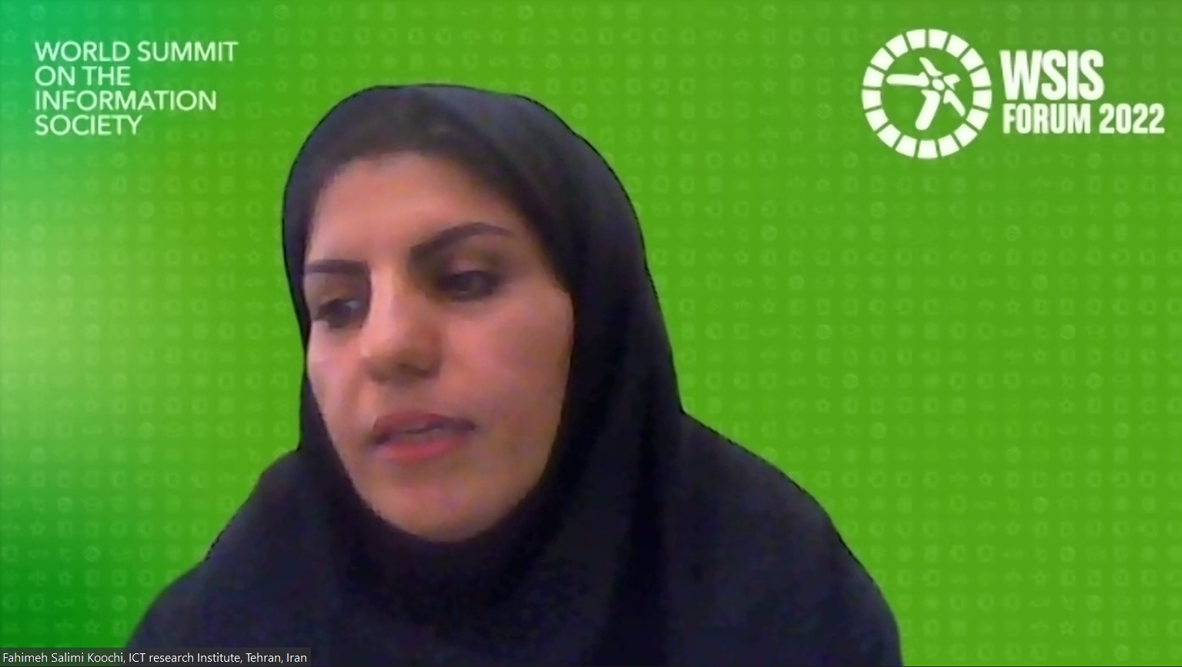The impact of ICT development in urban or rural areas: smart villages and smart cities
ICT Research Institute
Session 271
In this workshop, the impact of information technology as an enabler infrastructure in sustainable development is examined. The study of cities from the use of information technology and smart infrastructure is first examined and then the impact of information technology will be considered. In this regard, the effect of information technology in rural areas has also been considered. The main question is whether the connection of villages to the Internet has a good social, economic and environmental impact. This workshop focuses on infrastructure and information obtained in studies in Iran and will be in the following order.
First, we will talk about the general impact of ICT on developing sustainable smart urban or rural areas. Then we will give a brief introduction to Mashhad smart city project and talk about the ICT organization's role and responsibilities in developing smart Mashhad by highlighting the city ICT projects and discussing their impacts on the city. We will also have a short talk about the impact of emerging technologies like IoT on smart city development.
In the third section, we will also have a presentation about the impact of ICT infrastructure in rural areas. we will focus on the least developed areas in this study. In another experience, we will talk about the general evaluation of cities from the aspect of smart cities and present our suggestion of a system for the evaluation and ranking of cities. Finally, we will talk about key performance indicators (KPIs) and the experience of assessment in Iran. In this part, we expand the standardized KPIs and map them to contextualized KPIs, which concern the challenges and priorities for the specific case of Mashhad under study.

Alireza Yari is an Associate professor at ICT Research Institute and head of the Information Technology Research faculty. He has been directing research in the field of cloud computing, big data, IoT, and artificial intelligence for about 20 years. He is now supervising projects in the field of smart sustainable cities.
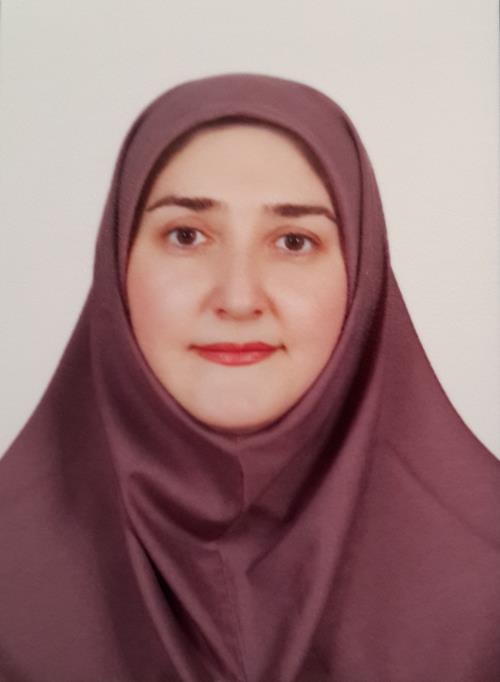
Dr. Mahmoudi is an active researcher in the areas of content management & creation and augmented reality and has a high motivation for applying the related techniques to human issues such as human-computer interaction and e-pedagogy/ e-learning as well. At present, she is an Assistant Professor and Head of Education, Scientific & International Collaboration Office at ICT Research Institute, a senior member of IEEE, Secretary of IEEE Iran Section, last IEEE WIE Committee chair, Vice-Rapporteur for Q7, ITU-D SG1, and in the meantime, the editor – in – chief of Iran e-learning Association’s Newsletter.
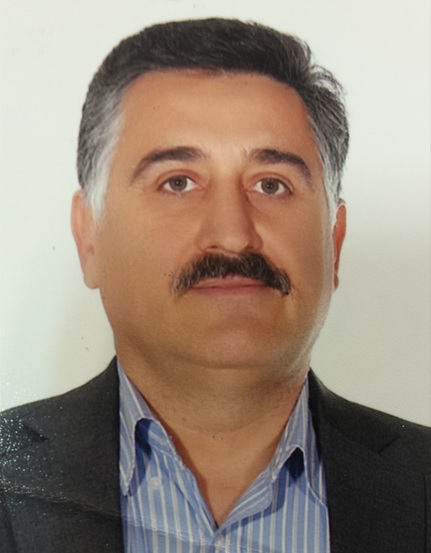
Mohammad Reza has a Ph.D. degree in Electrical Engineering –Telecommunication (2004) and a Master of Arts degree – in Graphics (2017). He has worked for ICT Research Institute as a project manager and R&D Engineer on different telecommunication ad IT projects for More than 30 years. He has many publications and workshops on Smart Cities, Internet of things, Semiotics, NLP, Smart grid optimization, Telecom system Simulation, Artificial & Intelligent systems, Cloud computing, and Big Data. His talk is about “standardized Evaluation of smart city: a case study of Mashhad”
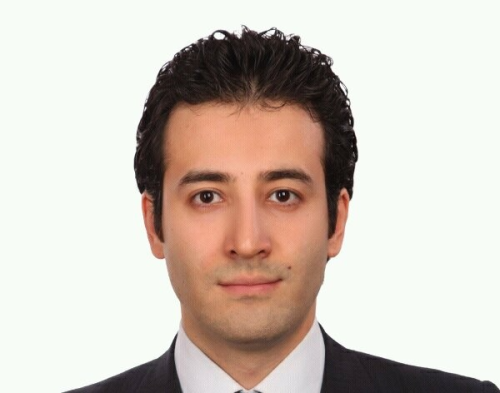
Navid is currently a Ph.D. Student in Industrial Engineering at Yazd University. He has several years of professional experience in industrial and organizational environments in areas such as supply chain planning, CRM, sales management and planning, project management and control, transportation planning, operational budgeting, operational planning, training management, freight, and passenger transportation management and planning, smart city and stratification, spatial data infrastructure, IoT and electronic payment. Furthermore, he is vice president of the smart city section in the ICT Organization of Mashhad.

Amin Faraji is an assistant professor at the University of Tehran and the president of the smart city research center of Iran. He has been working on the smart city for 10 years. He graduated from the University of Tehran in the field of urban and regional planning. He is going to talk about “National Smart City Committee of Iran; Process and Methodology”
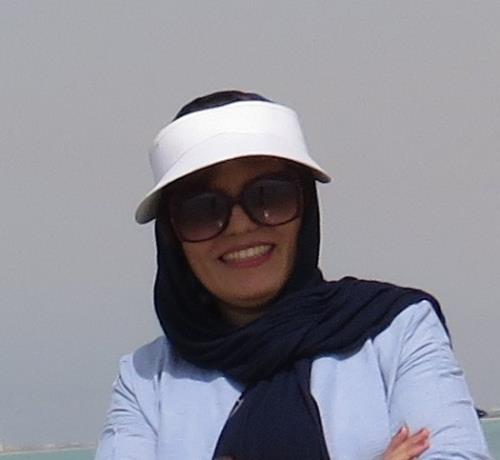
Fahimeh Salimi Koochi received her MSc in Electrical engineering (communications) at Yazd University. She has been a researcher at Iran ICT Research Institute (previously named ITRC) since November 2009. Her current research interests include Artificial Intelligence, Big Data, Smart Cities, Pattern Recognition, and Image Processing.
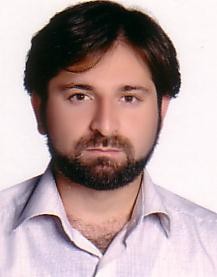
He is a faculty member at ICT Research Institute of Iran, and holds a bachelor's and master's degree in electronics and communications engineering from the Tehran Polytechnic University. He has been directing several interdisciplinary researches concerning Rural ICT, Network Security, Internet Governance, Cyber Policy-making and Spatial Planning in his work experience.
-
 C1. The role of governments and all stakeholders in the promotion of ICTs for development
C1. The role of governments and all stakeholders in the promotion of ICTs for development
-
 C2. Information and communication infrastructure
C2. Information and communication infrastructure
-
 Goal 6: Ensure access to water and sanitation for all
Goal 6: Ensure access to water and sanitation for all
-
 Goal 7: Ensure access to affordable, reliable, sustainable and modern energy for all
Goal 7: Ensure access to affordable, reliable, sustainable and modern energy for all
-
 Goal 11: Make cities inclusive, safe, resilient and sustainable
Goal 11: Make cities inclusive, safe, resilient and sustainable

